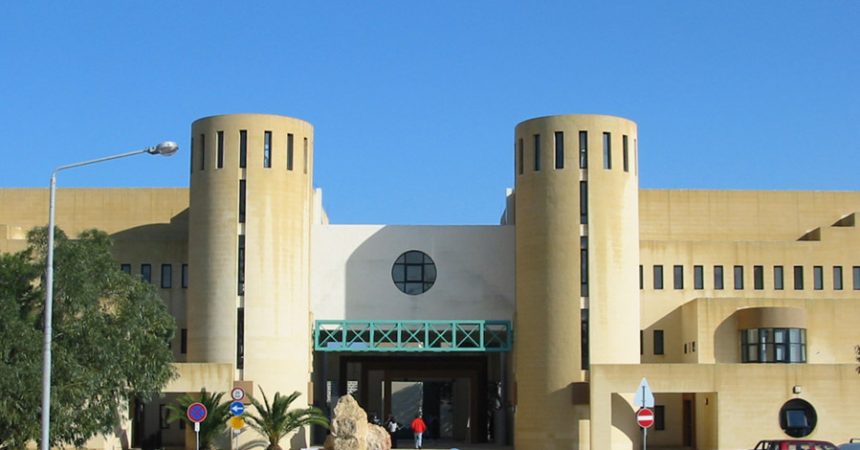In April of this year, the Ministry for Education and Employment published Increased Access, Better Quality — A Vision for Tomorrow’s University in the Modern World, a Consultation Paper for discussions on a future ‘University Act’. As I read it, I found myself asking the same question over and over again: What is the University for?
It turns out that my question is ambiguous between two possible readings, both connected with the problem of value. First: What is the value of the University and for whom does it have value? Second: What are the values of the University and what is it willing to stand for?
Presumably, the first question is what the authors of the Consultation Paper would claim they were trying to answer. Indeed, it would be churlish to argue with the paper’s stated principles, including autonomy, inclusiveness, student participation and transparency.
As a public institution founded on merit and benefit potential, the University of Malta is “for” everyone. It is accountable to the public and must exercise its autonomy judiciously in order to serve the public good. Therein lies its value as the “critic and conscience of society” [sic].
Principles risk becoming platitudes if the concrete proposals they spawn contradict the stated values. In this regard, the document’s proposals for governance and financing have attracted much criticism, leading to reassurances by the Education Minister, followed by an insistence on the part of the University Rector that academic decisions must remain the “sole preserve of academics”.
The motivation for these assurances is by now well-known. The Consultation Paper suggests a new Executive and Governing Board. Crucially, the Governing Board is to be composed entirely of non-academics, appointed directly by the Prime Minister, on the basis of a proven record in management, finance and/or human resources.
Even if we leave aside the important matter of how the core value of transparency is to be guaranteed by prime ministerial fiat, the consequences of this proposal are broader and run deeper:
- It divorces academic from executive function. Insofar as academic decisions will remain the preserve of academics, they risk becoming academic in the narrowest possible sense, the assumption being that policy-making is not the preserve of the academic body. This does not serve the aim of democratisation; nor will it enhance participation.
- The creation of the new executive arm, with a composition that emphasises business and financial acumen, brings the running of the University increasingly in line with company management. It also opens up the possibility of our (public) University being increasingly subject to (private) commercial interests.
The rationale for these proposals becomes clearer in view of the proposed role for state financing. Public funds are to be subject to a three-year service contract, contingent on student numbers and the development of programmes that “meet societal needs and aspirations”. This begs the question: who will determine these needs and aspirations and how?
The problem is that the evolutionary timeframe of such needs and aspirations tends to exceed the length of a three-year undergraduate programme. Determining what they are requires deeper investigation than the mere tapping of market forces would warrant.
On the other hand, three years could be enough to determine job market trends, if the University is viewed primarily as a service provider whose performance is to be measured in numbers of employable graduates. If that is the view, then the answer to the question of “what value and for whom” can be stated quite succinctly, though it jars with the consultation paper’s statement of core values.
Under this view, the value of a university is primarily instrumental: Its role is to shape individuals to fit market gaps. To the extent that tertiary education can be monetised, it will have value primarily for market operators, who must therefore determine its management.
I do not know if this was the explicit intention behind the proposals. It could be that the authors simply took the underlying model as read, as the “only game in town”. That is the kind of theology that universities should be geared to question, if they are to uphold their values as educational and research institutions.
To answer the question of “what a university stands for” by calling it the “critic and conscience of society” is misleading and superficial.
One thing you can do with a critic is to silence them, perhaps by depriving them of the time and space to be critical. One thing you can do with a conscience is to salve it, perhaps by persuading it that there are targets which, if reached, will make up for more important, longer-term goals which have been missed.
In any case, a conscience is typically conceived as univocal (and eminently ignorable). A society is better served by a University which is polyphonic and vocal, one that takes seriously its role as service provider, but also as advocate and opponent; as an environment in which ideas flourish and in which education is not a mould that shapes individuals, but a formation process for people who can lead and shape.
This is the University I am “for”, the University I would like to work for, and in.
Dr. Albert Gatt is a Senior Lecturer and Director in the Institute of Linguistics and Language Technology













